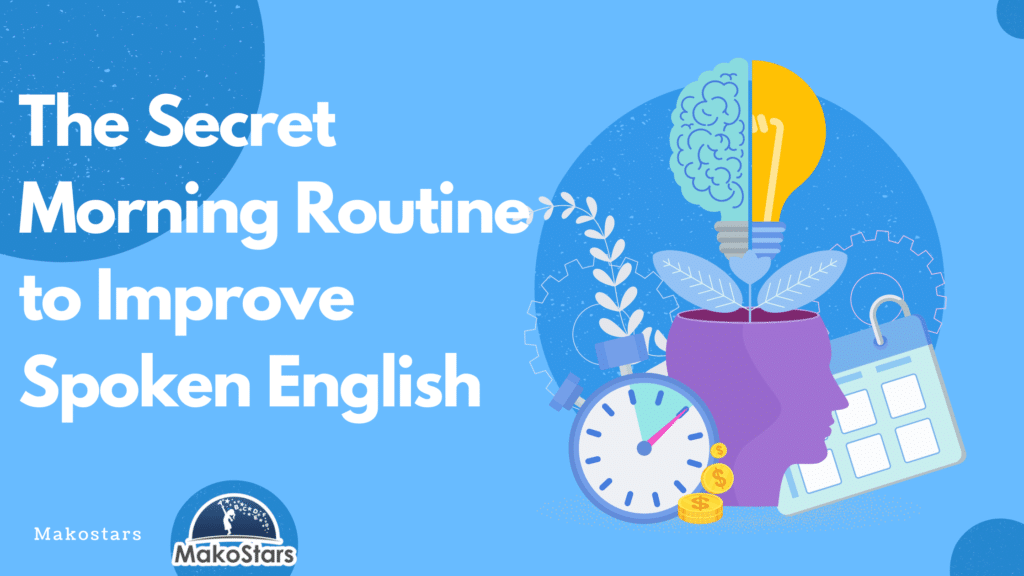Students who involve themselves with English for just 10-15 minutes each evening show better results compared to those who study longer but irregularly.
Learning English can be tough with a packed schedule. This piece offers proven ways to create a nighttime learning routine that fits your lifestyle. These strategies will help you maximize your evening study sessions, regardless of your current English level.
Why Evening English Learning Sessions Boost Language Retention
Setting up evening English study sessions isn’t just about convenience—science backs it up. Your brain processes information differently at night. This makes evening study routines work better for language learning. Let’s look at the research behind this fascinating pattern.
The Science of Memory Consolidation During Sleep

You might have noticed how studying just before bed helps information stick better. Research shows that sleep plays a vital role in building new memories and language skills. Your brain actively moves information from short-term to long-term memory storage during sleep.
Memory consolidation happens when we sleep. Scientists have found that specific electrical patterns in the sleeping brain improve our ability to remember new words and complex grammar rules by a lot. Two types of brainwaves—slow oscillations and sleep spindles—work together during non-rapid eye movement (NREM) sleep to boost long-term memory storage.
Sleep does more than help us remember single vocabulary words. It helps us extract linguistic rules and patterns too. Research shows that brainwave synchronization during sleep helps our brains connect related information. This lets us understand grammar rules better. Your night study schedule doesn’t just store individual words—it helps you learn English’s structure itself.
How Evening Learning Affects Your Brain
Evening hours give unique advantages for language learning. Studies show that the human brain learns more effectively at night. Research on Duolingo users found that people who practiced right before bedtime did 52.9% better than those who studied at other times.
This works better because:
- Your brain hits a second peak in cognitive function between 4:00 PM and 10:00 PM
- Evening study creates a “sleep-learning bridge” that moves information to long-term memory faster
- Your brain’s prefrontal cortex, which handles creative thinking and problem-solving, becomes more active at night
Different types of language learning work better at different times. Evening practice just before sleep improved procedural memories (like pronunciation or speaking skills) by a lot. But declarative memories (like vocabulary) worked better with afternoon learning. Speaking and listening practice might work best in evenings, while afternoons could suit vocabulary better.
Research on Night Time Study Effectiveness
Evening English learning sessions work well.
Brain activity research shows bigger changes in the brain’s control of hand movements with evening training versus mornings. This suggests that practicing speaking skills might work better during evening hours since pronunciation involves motor learning.
Evening learning brings practical benefits too. Students often feel more relaxed during night study sessions. They have all day to prepare and can focus without other commitments. This relaxed state helps them absorb new information better.
These science-backed approaches can improve your English learning:
- Study complex grammar rules between 4-10 PM
- Review lessons right before sleep
- Get 7-9 hours of good sleep after studying
- Take a quick morning review to strengthen what you learned last night
Matching your ESL English habits to your brain’s natural rhythms creates a better and faster language learning experience.
Setting Up Your Evening English Environment
Your study environment plays a vital role in learning – just as much as your study materials. The physical space around you will affect how well you learn English skills in the evening. Let’s set up the perfect environment that helps you learn better at night.
Creating a Distraction-Free Study Space
A dedicated, quiet zone forms the foundations of your evening study routine. Brief interruptions can decrease performance and increase errors while learning languages. Your brain starts to connect focused learning with a specific location when you practice English there every night.
Pick a quiet spot in your home – your bedroom, home office, or a private corner of your living room could work well. The key lies in staying consistent. Your brain learns to block out distractions naturally when you use the same space daily.
Set clear rules with people at home. A “closed door” rule tells others not to disturb you during study time. Sticky notes can signal “study in progress” if you share the space with others.
Your devices pose the biggest threat to evening focus. Switch them to “Do Not Disturb” or use apps that block distracting websites. Paper materials work better than digital ones since screens tend to pull your attention away.

Essential Tools for Night Learning Sessions
The right tools turn sporadic English practice into a solid routine. Keep these items ready in your study space:
- Physical materials: Vocabulary notebooks, grammar guides, English fiction books, and journals to practice writing
- Audio equipment: Noise-canceling headphones that help with listening and pronunciation
- Organizational supplies: Desk organizers, file folders, and storage to keep everything handy
- Digital resources: Language apps, digital flashcards, and voice recorders to check pronunciation
These materials create an English-focused environment in your study corner. Quick access to resources means more time spent learning and less time searching. This setup naturally leads to more frequent practice.
Adjusting Lighting for Better Focus
Good lighting makes a big difference in your ability to focus during night study. Research shows proper lighting can reduce eye strain by up to 60% – this matters even more at night when your eyes feel tired.
Bright but gentle lighting works best. Cool white light between 4000K and 5000K boosts alertness and brain performance by up to 20%.
Put your lamp where it won’t create glare or shadows. Right-handed learners should place lamps on their left side, and left-handed learners should do the opposite. Mix room lighting (300-500 lumens) with focused desk lighting (450-850 lumens) to support different English learning activities.
Late-night study calls for warmer lighting (2700-3000K) that won’t mess with your sleep. The American Medical Association points out that blue light at night can disrupt sleep patterns and affect how well you remember new English material.
5 Power Habits for Your Night Time Study Routine
Regular practice turns casual learners into confident English speakers. Research shows that good evening habits can boost your English skills by a lot. Here are four proven ways to make the most of your nighttime learning.
The 20-Minute Vocabulary Review
You can boost your word retention with just 20 minutes of vocabulary review each evening. The Goldlist Method gives you a quick way to learn – write out words and enjoy the process instead of cramming vocabulary. This relaxed approach works through these steps:
- Write 20-25 new words in your native language and English
- Take a short break, then start again if you want
- After two weeks, review and rewrite only the 12-15 words you find challenging
- Keep going until only the toughest words remain
Word association games are a great way to build vocabulary. These fun, low-pressure activities help you remember, describe, and use subject-specific vocabulary. Make vocabulary flashcards with the word and definition on one side, and a picture with an example sentence on the other.
Have a look at our 15 minute morning session: The Secret Morning Routine to Improve Spoken English (Even When Alone)

Audio Immersion Techniques
Your brain learns language well when you listen to audio before sleep. Listening to material you’ve studied during pre-sleep periods helps develop fluency. The best results come from audio content you already know, as this helps your memory retain information better.
Recording your voice is another powerful tool. You can record yourself speaking English phrases or passages and listen back to spot areas to improve. This method helps both your speaking and listening abilities at once.
Writing Practice Before Bed
Evening writing helps lock vocabulary and grammar into your long-term memory. Starting a language journal lets you track your daily language experiences and note any challenges or new words. This gives you a clear picture of what you do well and where you need work.
Creating short stories with new vocabulary words works well too. The RAFT method (Role, Audience, Format, Topic) makes this more fun by letting you use language creatively.
Reading English Fiction at Night
Reading fiction before bed stands out as one of the most enjoyable ways to learn English. Stories expose you to different sentence structures and vocabulary while keeping you entertained. E-readers come in handy since you can look up new words right away.
Fiction does more than teach vocabulary – it shows you real language patterns and cultural context. Start with authors who write clearly. Have a look at our online store to find a variety of options!

Optimizing Your Brain for Evening English Learning
Your brain needs the right fuel and preparation to learn languages effectively in the evening. The right foods, mental techniques, and knowing common pitfalls can boost your learning capacity by a lot. These biological factors directly affect how much English you’ll absorb during night sessions, beyond just having a good study environment.
Best Foods for Night Study Sessions
The food you eat before studying affects your brain’s performance by a lot. Foods with omega-3 fatty acids help your brain health and improve memory. Here’s what works best for evening learning:
- Protein-rich foods help you stay alert and motivated during night study sessions
- Whole grains release glucose slowly and give you lasting energy without the crash you get from processed carbs
- Blueberries make your short-term memory better, according to research from Tufts University
- Dark chocolate boosts brain activity and creates mood-enhancing endorphins
The timing of your meals matters just as much as what you eat. You should eat your last snack at least two hours before bed to sleep well. Research shows that meal timing affects mental health too—people who ate at night had 26% higher depression-like mood levels and 16% higher anxiety-like mood.

Mental Preparation Techniques
The right mental conditioning helps you study English productively in the evening. Deep breathing exercises calm your nervous system and reduce stress that could block learning. Here’s a simple technique to try before you start: breathe in slowly for four counts, hold for two, then breathe out for four.
Visualization works really well too. Take two minutes before your evening routine to picture yourself speaking English confidently. Research shows this practice strengthens neural pathways and helps you perform better under pressure.
Avoiding Evening Learning Pitfalls
Some common mistakes can hurt your evening study progress. Information overload is a big problem—studying for hours without breaks makes learning less effective. You’ll learn better if you break up your study time into shorter sessions with breaks in between.
Being tired makes it harder to remember things—those late-night cramming sessions might do more harm than good. Trying to do multiple things at once breaks your focus too, so put your devices on “Do Not Disturb” mode.
Using Voice Recording for Pronunciation
Night is the perfect time to work on your pronunciation without feeling nervous about others listening. The shadowing technique works great: you listen to a native speaker’s short clip, pause it, and repeat what you heard by copying their pronunciation, rhythm, and tone.
Recording your English speech is a great way to get better. Any voice recording app helps you capture and compare your speech with native pronunciation. This lets you spot areas where you need to improve without anyone else judging you.
Digital Flashcards for Bedtime Review
Digital flashcards work perfectly for bedtime review. Quizlet helps you make custom flashcards with terms and definitions while creating different types of tests. Digital cards track your progress better than paper ones. They show which words you know well and which ones need more practice.
Digital flashcards’ multimedia features make them work better for evening review. Most apps let you add pictures and sound to cards—seeing a picture of a cat while hearing the word helps you learn both pronunciation and recognition. Your digital card sets stay available on all your devices, unlike paper cards that often get lost.
Conclusion
Your brain works differently at night. This makes evening hours perfect to learn English. You can practice speaking, listening and tackle complex grammar more effectively during these hours.
The right environment plays a crucial role in how well you learn. Good nutrition and mental preparation affect your success by a lot. Evening study isn’t just another task on your list. Think of it as your dedicated time for growth when your mind absorbs new knowledge best.
Note that you don’t need long study sessions to improve. Just 20 minutes each evening with the right tools and techniques will help you advance steadily on your trip to English mastery. These practices should become part of your daily routine. This allows your brain to naturally strengthen new language connections while you sleep.
Stay patient as you develop these new habits. Your evening routine might take anywhere from 18 to 254 days to become automatic. Each practice session brings you closer to speaking English fluently.



